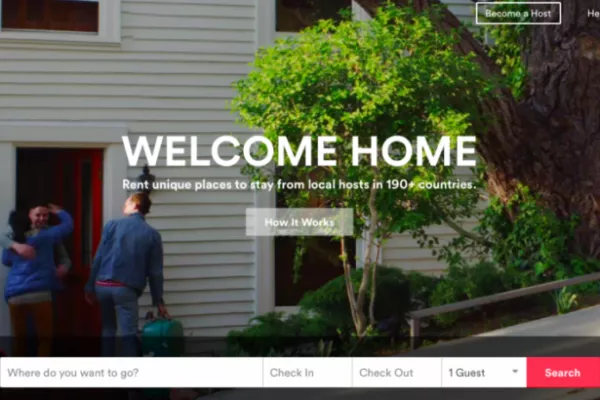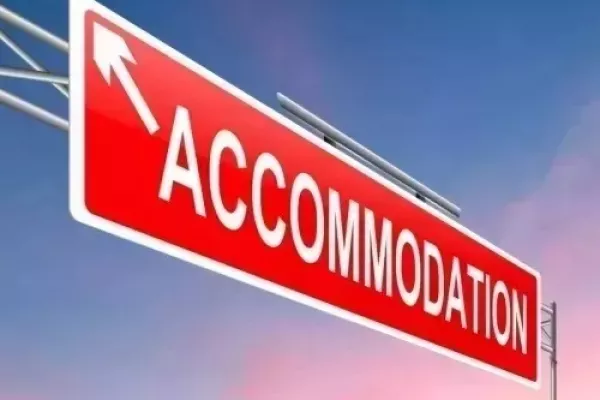Four Seasons isn't taking Airbnb’s push into high-end lodging lightly.
"I would be naive to say that we aren’t being mindful of the Airbnb effect," Four Seasons Hotels and Resorts Chief Executive Officer Allen Smith said in an interview about the Toronto-based company’s history and future outlook. "It’s just another example of the speed in which the market is changing and the manner in which we need to be prepared to respond to it."
The five-star hotel chain created six decades ago by Isadore Sharp continues to expand worldwide while working to preserve its top-tier reputation in an industry increasingly driven by millennial expectations and tastes. The company, jointly controlled by Microsoft Corp. co-founder Bill Gates and Saudi Prince Alwaleed Bin Talal, has introduced a mobile app that will include a chat function and plans a guest recognition program to bolster loyalty. In an era where plush bathrobes and free high-end toiletries are standard, the focus must be on refining guest service and staying on top of emerging trends, including the rapid ascent of digital disrupters, according to Smith.
“If you don’t, the risk is that the relevance of your brand diminishes over time regardless of what a great company this is,” Smith said last week from the restaurant at the closely held company’s Four Seasons hotel in Toronto.
Luxury Deal
Smith’s comments are a departure from the party line typically espoused by upscale hotels -- that Airbnb Inc. opens up a new market but doesn’t compete directly with them. The San Francisco-based firm moved closer to becoming a full-service global travel company in February when it bought Montreal-based Luxury Retreats, a manager of high-end rentals and services, in a deal valued at $300 million. It marked the home-sharing service’s biggest acquisition yet.
Luxury rentals are a main growth area for the vacation market, which has seen online home-sharing companies muscle in on traditional lodging providers.
Airbnb’s push into the space gives it further potential to “capture the millennial category at all price points,” Jan Freitag, a senior vice president at Hendersonville, Tennessee-based STR Inc., a hotel data and analytics firm. The customer who initially used Airbnb to save money now sees the option to splurge, he said.
Rental Competition
The Luxury Retreats purchase puts Airbnb in competition with Four Seasons’ own rental service it operates through partnership with its private residential owners, allowing the company to offer a more secluded setting for resort guests.
“It’s a very important part of our business and something that we want to continue on,” said Smith, 59, former head of Prudential Real Estate Investors who was appointed Four Seasons CEO in 2013. He oversees the company’s growing number of properties, which now stand at 105 hotels in 43 countries.
Of the 33 Four Seasons-branded private residences worldwide, 17 participate in the company’s vacation rental program. The hotelier expects further rental growth as it adds resorts to its roster, including a recently opened property in Anguilla and an upcoming project in Los Cabos, Mexico. Airbnb also has the potential to influence pricing across the board.
“Ours is a business of supply and demand, so anything that introduces additional supply tends to put pressure on rates,” Smith said.
The Four Seasons CEO also foresees Airbnb becoming a bigger player in providing services as opposed to just accommodations.
Meaningful Force
“Will they match us head to head in terms of service quality? Probably not,” Smith said. “That’s pretty hard for people to do, but I wouldn’t underestimate their ability to get pretty close. I think that they will be a meaningful force that we have to reckon with.”
One looming question is whether Airbnb ultimately positions itself “to control hotel inventory that they can then distribute,” Smith said.
“They are a distributor of inventory, however you want to describe it. Whether it’s in someone’s home or it’s within a hotel it’s all the same in many respects,” Smith said. “I don’t underestimate at all the impact they’ll continue to have on the marketplace, whether it’s at the more mid-market or the higher end of the market.”
If Airbnb goes public and begins to feel more pressure to boost growth, the easiest way is to allow regular accommodations on its system, according to Freitag.
“The scary scenario for the hotel industry is for the millennial user who is used to using the Airbnb app to book their accommodations to not have to leave that walled garden and suddenly have the full travel experience,” Freitag said in an interview.
Meanwhile, Smith said he can’t point to any business the company is losing because of Airbnb and that he is fully confident in Four Seasons’ outlook.
“There’s ample opportunity for us to grow in a meaningful way, but it’s not growth at any cost,” he said.
News by Bloomberg, edited by Hospitality Ireland









